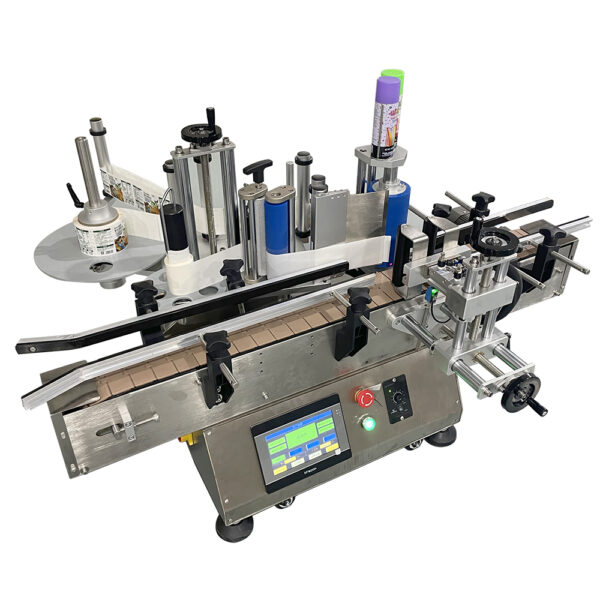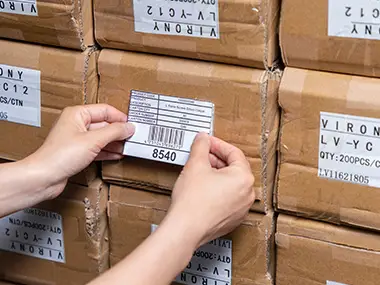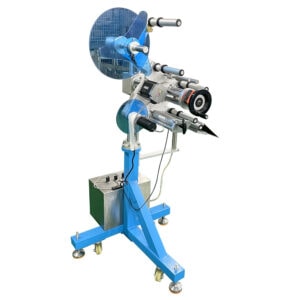Industries often face challenges with inefficient labeling processes, leading to costly errors, production delays, and wasted materials. Labeling machines offer a reliable solution, enhancing precision, speed, and cost-efficiency in product labeling.
A labeling machine is an automated device designed to apply labels to various surfaces, improving accuracy, efficiency, and consistency in industrial packaging processes.
Labeling machines are indispensable tools for diverse industries, providing solutions for labeling a wide range of surfaces and products. They streamline operations and ensure product compliance and presentation.

Definition and Purpose of Labeling Machines
A labeling machine is an automation tool that applies labels to products or packaging. These machines help businesses reduce labor costs, enhance productivity, and maintain accuracy in product identification. They are a vital part of production lines, especially in sectors like food, pharmaceuticals, and cosmetics, where precise labeling is crucial for compliance and branding.
From flag labeling machines for cables to bottle labeling machines for beverages, labeling machines accommodate different product shapes and sizes with ease.
Key Types of Labeling Machines
Automatic, Semi-Automatic, and Manual
- Automatic Labeling Machines: Fully automated, suitable for high-speed production lines.
- Semi-Automatic Machines: Require some manual intervention, offering flexibility for medium-scale operations.
- Manual Machines: Cost-effective but labor-intensive, ideal for small businesses.
Specialized Machines
- Flat Labeling Machines: Designed for flat surfaces like cartons and boxes.
- Corner Wrap Labeling Machines: Provide precise labeling on corners, ensuring comprehensive packaging details.
- Customized Labeling Machines: Tailored to specific industrial needs, ensuring compatibility with unique products.

Functionality and Workflow
Labeling machines typically include:
- Sensors and Cameras: Detect product positioning for precise label application.
- Peeling Mechanisms: Strip labels from their backing and position them for application.
- Adhesive Systems: Apply labels securely to surfaces, ensuring durability during transport and storage.
Operators can configure machines via a human-machine interface (HMI), enabling adjustments for label size, placement, and speed. Learn more about customized labeling machines for advanced configurations.
Industries Benefiting from Labeling Machines
Labeling machines find applications in industries such as:
- Pharmaceuticals: Ensuring compliance with strict labeling regulations.
- Beverages: High-speed labeling for bottles and cans.
- Electronics: Small-scale precision labeling for wires and circuit boards.
The versatility of labeling machines, such as those used for honeycomb paper making or bottle filling, demonstrates their importance across manufacturing sectors.
Advantages of Using Labeling Machines
- Speed: High throughput, with some machines capable of labeling up to 1,500 items per hour.
- Accuracy: Reduced labeling errors, ensuring consistency in product branding and compliance.
- Cost-Efficiency: Lower labor costs and minimized material wastage.

Types of Labels and Applications
Labeling machines handle various label types, including:
- Self-Adhesive Labels: Common in retail and logistics.
- Barcode Labels: Essential for inventory tracking and sales.
- Specialty Labels: Used for fragile or temperature-sensitive goods.
Products like vacuum packaging machines often utilize barcode labeling to ensure precise inventory management and tracking.
Automation and Customization
Modern labeling machines leverage advanced technologies, such as:
- PLC Controls: Enable real-time adjustments and synchronization with other production systems.
- Customizable Features: Machines like the corner wrap labeling machine can be configured to suit unique product designs.
For example, a liquid filling machine combined with a labeling system streamlines production for beverage manufacturers, reducing downtime and increasing efficiency.
Economic and Operational Benefits
Investing in a labeling machine translates to:
- Reduced Operational Costs: By minimizing manual labor and errors.
- Enhanced Productivity: Machines can operate continuously, ensuring higher output.
- Improved Brand Presentation: Accurate and attractive labeling enhances consumer trust.

Environmental Considerations
Many labeling machines support sustainable practices:
- Label Waste Reduction: Machines are optimized to minimize label misplacement and material waste.
- Eco-Friendly Labels: Compatible with biodegradable and recyclable label materials.
Industries using industrial shrink wrap or PET strapping machines often pair them with efficient labeling machines to maintain eco-friendly packaging standards.
Conclusion
Labeling machines are critical for modern manufacturing, offering speed, precision, and adaptability to meet diverse industry needs. Whether for simple applications or complex customizations, they enhance productivity and product presentation, making them indispensable for businesses aiming to optimize their production lines.









